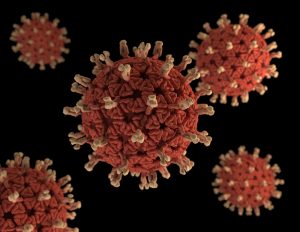The South Sudanese Ministry of Health and the World Health Organization (WHO) have started setting up sentinel surveillance sites to determine the extent of Rotavirus infections among children in the capital Juba.

Image/CDC/Jessica A. Allen/Alliza Eckerd.
In a statement, the WHO said information gathered from the surveillance exercise will help government in planning for a reduction of the country’s high Rotavirus child mortality rate.
“The rotavirus sentinel surveillance sites are critical to determine and characterize circulating (Rotavirus) strains and monitor infection trends in children under 5 years that will help the country to make evidence-based decisions for Rota vaccine introduction in the country, and to evaluate the impact post introduction of the vaccines,” the WHO said.
The sentinel surveillance project will assess the country’s heavy burden of rotavirus disease through active facility-based surveillance of diarrhoea cases.
Stool samples will be tested at the National Public Health Laboratory (NPHL) using the latest techniques. Low immunization coverage has been identified among the many factors behind the high prevalence of Rotavirus in South Sudan.
Rotavirus infections are the most common cause of severe diarrheal diseases in young children, and a leading cause of morbidity and mortality. The government plans to roll-out the Rotavirus vaccine in 2020.
- Listeria outbreak linked to Deli ham sickens four in two states, kills one in Virginia
- Listeria monocytogenes: Who’s most at risk, pathology and common sources
- ‘Wolf in sheep’s clothing’ in the immune system may make us vulnerable to bacterial infections
- CDC Identifies 16 States Affected By Ground Beef Salmonella Outbreak
- Los Angeles reports outbreak of endemic flea-borne typhus
- Universal flu vaccine: University of Montana awarded $10 million contract to develop
- Salmonella outbreak linked to ground beef products, 6.5 million pounds recalled
- Red Cross workers attacked during safe burial of Ebola victim in DR Congo

